
The PM KP oli has deliver a public lecture on the theme of “Peace, Democracy and Development” at the Asia Society. The event has been moderated by Kevin Rudd, former prime minister of Australia.
PM oli’s statement full text is here:
Thank you, Mr. Tom Nagorski, for the kind words of introduction.
The Hon’ble Kevin Rudd, Former Prime Minister of Australia
Distinguished Ladies and Gentlemen:
I begin by thanking the Asia Society for having me here today. I am also delighted to have former Prime Minister Rudd with us.
Today, I stand before you to share my thoughts on peace, democracy and development.
Nepali people have emerged through various struggles and transformations, at different junctures of history.
At one point of time, our forefathers fought against the imperialistic forces and our sovereignty and independence was preserved, by their courage, and patriotism.
The generation of my parents, who were ordinary peasants, had to fight to free themselves from the clutches of feudalism and oppressive regime. Their struggle uprooted the despotic family rule of Ranas.
And, my generation had to fight against an autocratic monarchy. This was our final assault on an illiberal and undemocratic regime.
Now, the course of Nepal’s political history has changed. We are a democratic republic.
But our fight is continuing in a different form; as a fight against poverty, underdevelopment and backwardness.
In the course of history, our political gains have not come without heavy price. Several compatriots made ultimate sacrifice and got martyrdom. Many lived in political exile while others were brutalized and suppressed.
I feel a bit emotional when I recall those dark 14 years that I spent in jail, including four years of solitary confinement. My crime was that I fought against autocratic regime. But this never deterred, rather emboldened me to continue the struggle.
Ladies and gentlemen,
As a result of our sustained struggle, democracy was restored in 1990. However, our fight for full-fledged democracy continued. We had never relented in our efforts. Nor was there any complacence towards our ultimate goal of a progressive democratic republic.
An armed conflict that began in 1996 was successfully resolved through a peace accord signed in November 2006.
Key to this process was the famous 12-point understanding forged in November 2005. I was among those who played an important role in forging consensus to advance this process and bring the rebellion force to a negotiating table.
This brought the seven party political alliance and the rebellion force together to mount a combined people’s movement against an absolute monarch who had snatched people’s rights through unconstitutional means.
The ensuing result forced the monarch to capitulate. The armed conflict ended, and peace process began. The restored parliament clipped the wings of the ruling monarchy and suspended it until it was finally abolished two years later by a democratically elected Constituent Assembly.
The Constituent Assembly, was highly inclusive having representation from all gender, castes, ethnics, linguistic groups, faith communities, cultures, geographical length and breadth of the country.
Dear Friends,
After 7 years of consultations and deliberations, arguments and debates, demands and pressures, peaceful agitation and campaigning, a highly progressive and democratic constitution was finally written, for the first time by people’s representatives.
As a leader of the second largest political party of that time I had an important responsibility to steer the process to a successful conclusion.
Finally, the Constitution was promulgated on 20 September 2015. It has finally settled the political issues that the country confronted for a long period of time.
This was a watershed moment in the political history of modern Nepal.
I believe that the future generations we may not have to go through the similar course of struggle for rights and freedoms anymore.
Through the Constitution we consolidated democratic polity, republican order, periodic elections, universally recognized human rights, separation of power with checks and balances, rule of law, independent judiciary, and inclusive and proportional representation system.
Implementation of the constitution is as much important as its promulgation. I had the privilege of serving the nation as the first Prime Minister under the new constitution. It was thus incumbent upon my government to take decisive steps to implement the constitution as per the roadmap it has provided.
The Constitution came into full implementation after the free and fair democratic elections held last year for the federal, provincial and local levels. With a historic electoral turnout, the elections resulted in 41 percent of women’s representation, and formation of stable and democratic governments at all three tiers of the federation.
The Government I head enjoys three-fourth support of the parliament. The ‘Policies and Programmes’ of my Government were unanimously endorsed by the parliament, an exercise seen rarely in a competitive democracy. This proves that the fellow Nepalis reposed trust in our leadership and our ability to deliver.
Dear Friends,
We steered a successful peace process through inclusive political dialogues and deliberations and spirit of accommodation.
Ours was a home-grown, nationally led and owned peace process.
In the process:
-We managed to reconcile competing demands and aspirations of our diverse population;
-We ensured equal participation of all stakeholders and heard their voice;
-We recognized the important role of women in conflict resolution and peace process;
-We transformed state structures and institutions to mirror the mosaic of our society; and
-We brought the government closer to the people through restructuring of the State.
The major thrust of the peace process has been to promote reconciliation in society healing the wounds of conflict period.
Ladies and Gentlemen,
I have a clear vision for the development of the country. I am aware of our strengths, challenges and limitations.
To sustain the political gains and deliver on the development dividend to our people, my Government has set a long-term goal of “Prosperous Nepal and Happy Nepali”.
To realize this goal, we must:
– Eradicate poverty,
– Eliminate inequality and discrimination,
– Create employment opportunities,
– Ensure social justice,
– Promote good governance, and
– Ensure effective service delivery,
Our aim is to attain a comprehensive democracy that empowers individuals in all spheres of national life- political, economic, social and cultural. I have a conviction that full realization of SDGs, makes this possible.
Nepal is a resource-rich country. But the level of development is well below our potentials. This mismatch must come to an end sooner than later.
We have identified the drivers of economic growth. These include no other vital sectors than agriculture, energy, industries, transport, infrastructure, information technology, tourism, and urban development.
For making economic progress sustainable, parallel attention will be given to the climate change mitigation, adaptation and preservation of bio-diversity.
Nepal is safe for foreign investment. The Government remains committed to further improving business and investment climate in the country.
Ladies and Gentlemen,
Now, let me turn briefly to Nepal’s foreign policy priorities.
Nepal is the oldest independent state in our region, with her own distinguished and glorious history.
Amity with all, and enmity with none remains at the heart of Nepal’s foreign policy. This is inspired by the principles of UN Charter, Panchasheel, non-alignment, international law, and norms of world peace.
We enjoy cordial and friendly relations with both our immediate neighbours, India and China. Economic growth and prosperity in neighbourhood offer us a promising prospect for the development of our country.
Our relations with major powers and development partners have been all along cordial and friendly. We would like to further develop and expand our cooperative partnership with them. Extended neighbourhood and labour destination countries are also in our foreign policy priority.
Nepal has been playing an active role for the promotion of regional cooperation under SAARC and BIMSTEC.
On multilateral front, Nepal’s efforts will be directed towards promoting a rule-based, just and equitable international order in which all States- small and big- fulfill their international obligations in good faith, and all countries enjoy equitable opportunities to fulfill aspirations for development and prosperity.
Before I conclude, ladies and gentlemen, I would like to state that Nepal’s commitment to democracy and fundamental freedoms is total and unflinching. The long journey of our political struggle is synonymous to the struggle for democracy.
We will not allow any compromise on democratic norms, values and principles. We believe that democracy, development and respect for human rights and fundamental freedoms are interdependent and mutually reinforcing.
With these words, I conclude my remarks. I would be delighted to engage with you all in the interactive discussion.
Thank you.
(Peace, Democracy and Development:
Remarks by Rt. Honorable Mr. K.P. Sharma Oli, Prime Minister of Nepal at the Asia Society, New York.)
25 September 2018@abc
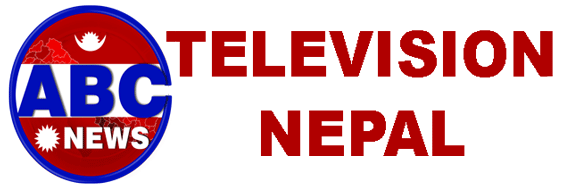
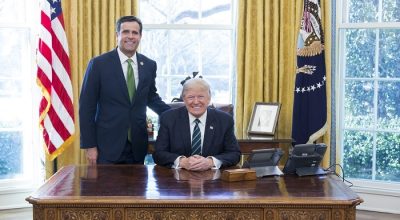
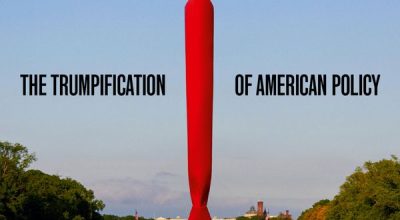

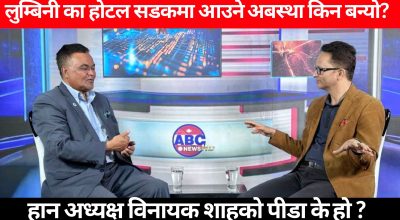

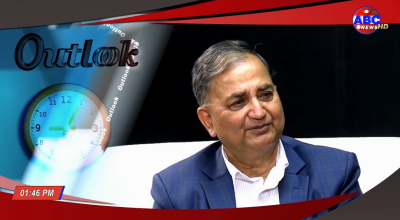
प्रतिक्रिया दिनुहोस्